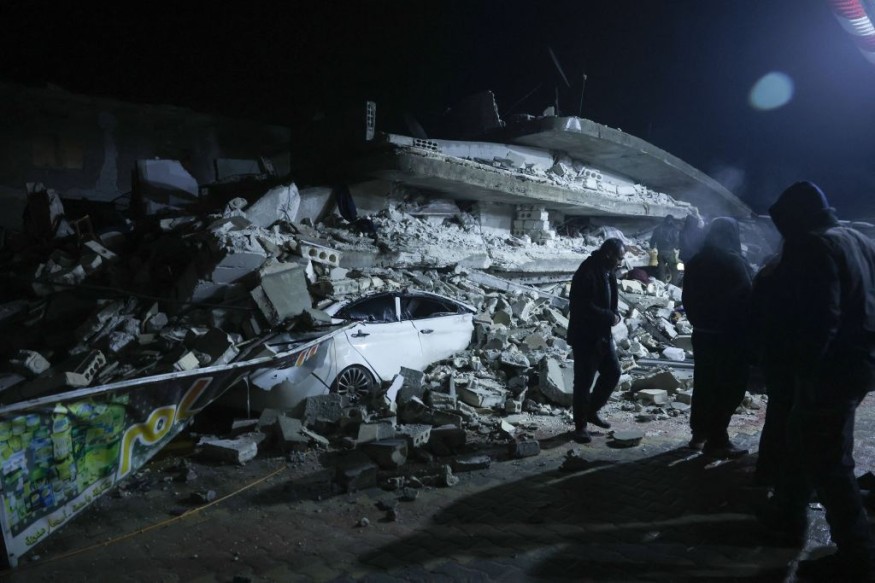A massive 7.8-magnitude earthquake struck Turkey's south in the early hours of Monday, February 6, collapsing houses and sending citizens rushing into the streets as aftershocks were felt across the area.
As per the United States Geological Survey (USGS), the earthquake hit 23 kilometers (14.2 miles) east of Nurdagi, Gaziantep province at a depth of 24.1 kilometers (14.9 miles). The quake was felt in various nations across the area, including Syria and Lebanon, because Nurdagi is located near the Turkey-Syria border.

Deadly Earthquake Killed More Than 50 People
The deadly earthquake killed more than 50 people in southern Turkey and collapsed dozens of buildings, and triggered a search for survivors under the rubble in the snowy streets, Reuters reported.
Turkish officials dispatched rescue teams and supply planes to the region near Kahramanmaras, proclaiming a "level 4 alarm" that requires international aid. According to preliminary reports, at least 23 people were killed in Turkey's Malatya region, 17 in Sanliurfa, six in Diyarbakir, and five more in Osmaniye, while a state media in Syria reported 42 deaths south of the border.
Erdem, a resident of the Turkish city of Gaziantep where the earthquake's epicenter is located, said that this was the first time he experienced such a strong quake in the 40 years he lived. He detailed that they experienced shaking at least three times very strongly that they felt like a baby in a crib.
He added that it was still too dark to see the extent of the damage. Everyone was sitting in their cars or tried driving to open spaces to get away from buildings that could collapse anytime due to the strong earthquake. Erdem thinks that not one person is left in their home in Gaziantep now.
According to a Reuters witness in Diyarbakir, 350 km (218 miles) to the east, the tremor lasted about a minute and damaged windows and a security officer claimed at least 17 buildings fell.
Powerful Earthquake Felt Outside Turkey
According to the report of Times of Israel, the powerful earthquake was also felt outside southern Turkey. It awakened people across the region, including Israel where it was felt in Tel Aviv and across the country.
The earthquake destroyed buildings in both Turkey and Syria, with a death toll anticipated to grow. In various locations on both sides of the border, rescue personnel and people desperately sought survivors under the wreckage of collapsed buildings.
Experts said that other areas that felt the earthquake include Cyprus, Syria, Lebanon, Greece, Jordan, Iraq, and as far away as Romania, Georgia, and Egypt.
Seismic Magnitude Scales Explained
The magnitude of an earthquake is related to the quantity of seismic energy released. Seismologists express this energy release using a Magnitude scale. Here are the usual impacts of earthquakes of varying magnitudes as per the website of the Government of Canada:
- Less than 3.5- Recorded but not felt.
- 3.5 to 5.4- Felt but rarely cause damage.
- Under 6.0- Can cause slight damage to well-built buildings, but major damage to poorly-constructed ones.
- 6.1 to 6.9- Can cause damage to poorly-made buildings and other structures within 100 kilometers.
- 7.0 to 7.9- Known as "Major" earthquake, which damages properties over large areas.
- 8.0 to 8.9- Called the "Great" earthquake, which causes major damage to structures and life within several kilometers across.
- 9.0- Rare great earthquake can cause damage to regions over 1,000 kilometers across.
RELATED ARTICLE: 7.7-Magnitude Earthquake Rocked Mexico on Chilling Anniversaries of 2 Previous Disasters; Tsunami Threat 'Largely Passed'
Check out more news and information on Earthquake in Science Times.











